Member Directory,
1847 - 1922
Dorman B. Eaton
Lawyer/Reformer
Centurion, 1854–1899
Thomas R. Foster
Hardwick, Vermont
New York (Manhattan), New York
Age thirty
Montpelier, Vermont
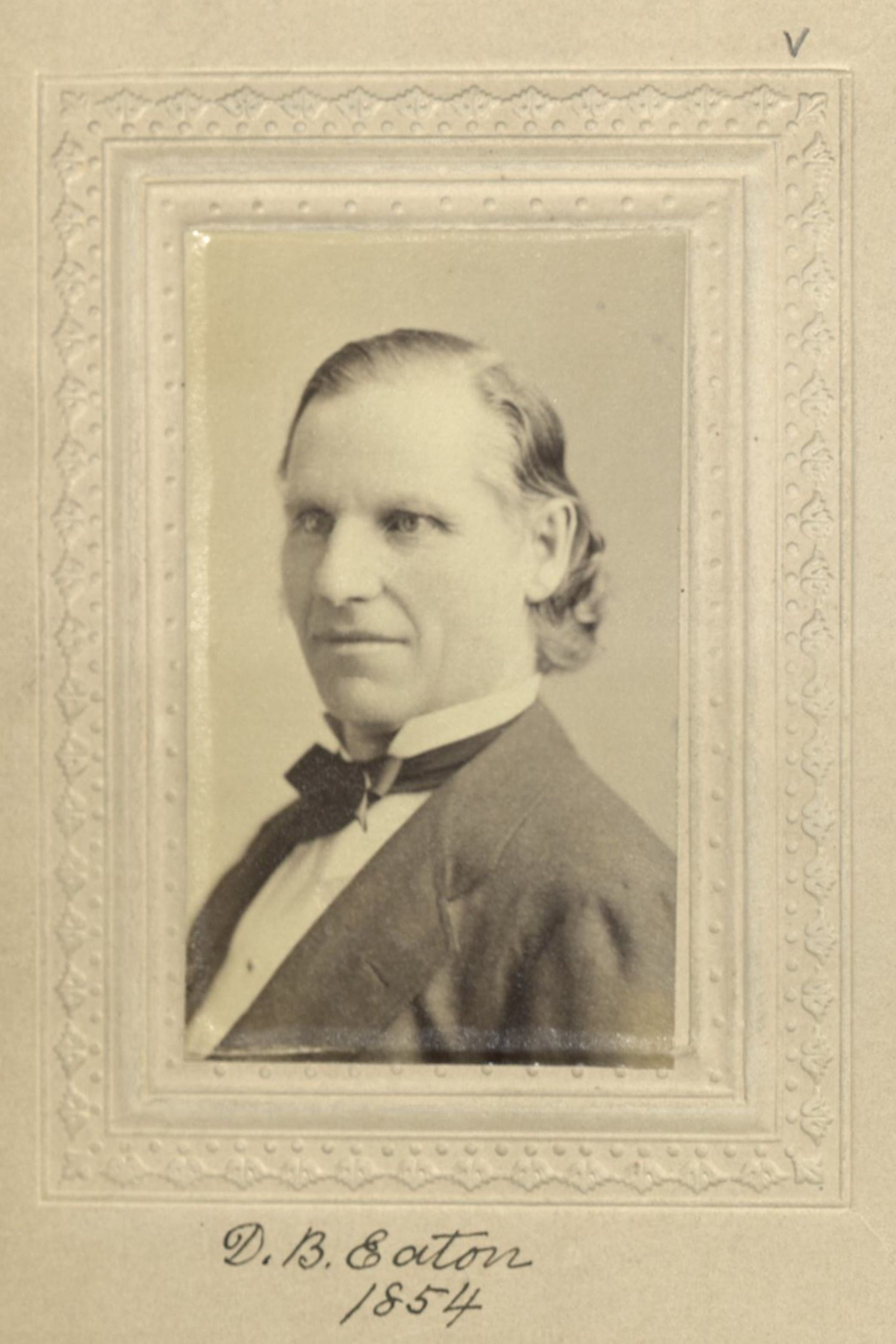
Century Memorial
Dorman B. Eaton was for many years one of the ablest and most prominent lawyers in New York, engaged with Judge William Kent in an extensive practice and prominent in many of the largest and most important cases in the courts. He was well equipped in his profession, sound, forcible, thorough, and contributed largely to the legal literature of his time.
He was one of the most public-spirited citizens in the city, was prominent in the attack upon the Tweed Ring, and in resistance to the tide of corruption which threatened to overwhelm the courts and bar of New York, and as a consequence was marked for assassination by those who were its agents, a fate which he narrowly escaped, with health so impaired that he withdrew from the active practice of his profession for a time.
But it is as one of the most foremost advocates of civil service reform that he will be best remembered. To him more than to any other man, unless it be to our honored member Everett P. Wheeler, is due the credit for the passage of the first Civil Service Act, of which he was the draughtsman, and to his wise conservatism is largely due its inauguration and extension. Realizing that the introduction of such a system required moderation and time, to accustom politicians and public men to such a radical change, in opposition to all the traditions of our Government, and seeing that the tree must take root before putting out its spreading branches, by careful study at home and abroad he prepared himself for the work, and by persuasion, by elaborate reports, by unanswerable arguments, and by unremitting labor he prepared the way for its final firm establishment by convincing legislators of its value, and creating an irresistible demand for it by the people. Undaunted through discouragement and failure, in season and out of season, as a member of the first Civil Service Commission, and afterwards as its chairman, through the administrations of General Grant, Hayes, Arthur and Cleveland, he saw finally the fruition of his labors both in the State and Nation, and the system of such inestimable value to the country well founded, never to be abrogated. Such a work is a lasting monument to any man.
In addition he was a close student and an efficient worker upon municipal problems. At the request of Congress he prepared a code of laws for the District of Columbia. He drafted a law for the establishment of a Board of Health and for the paid Fire Department, and the establishment of Police Courts in this City, fearlessly advocating them before the Legislature and meeting opposition and insult from the disreputable advocates of the old system with characteristic calmness and dignity, which brought success to his efforts. He labored in every good cause, was prominent in public enterprises, earnest in church and benevolent work, was known and respected throughout the city, was especially happy in his domestic relations, and will always be remembered as a leading citizen and ornament in the city in which he lived and labored so long.
Henry E. Howland
1900 Century Association Yearbook
Related Members
Member Directory Home-
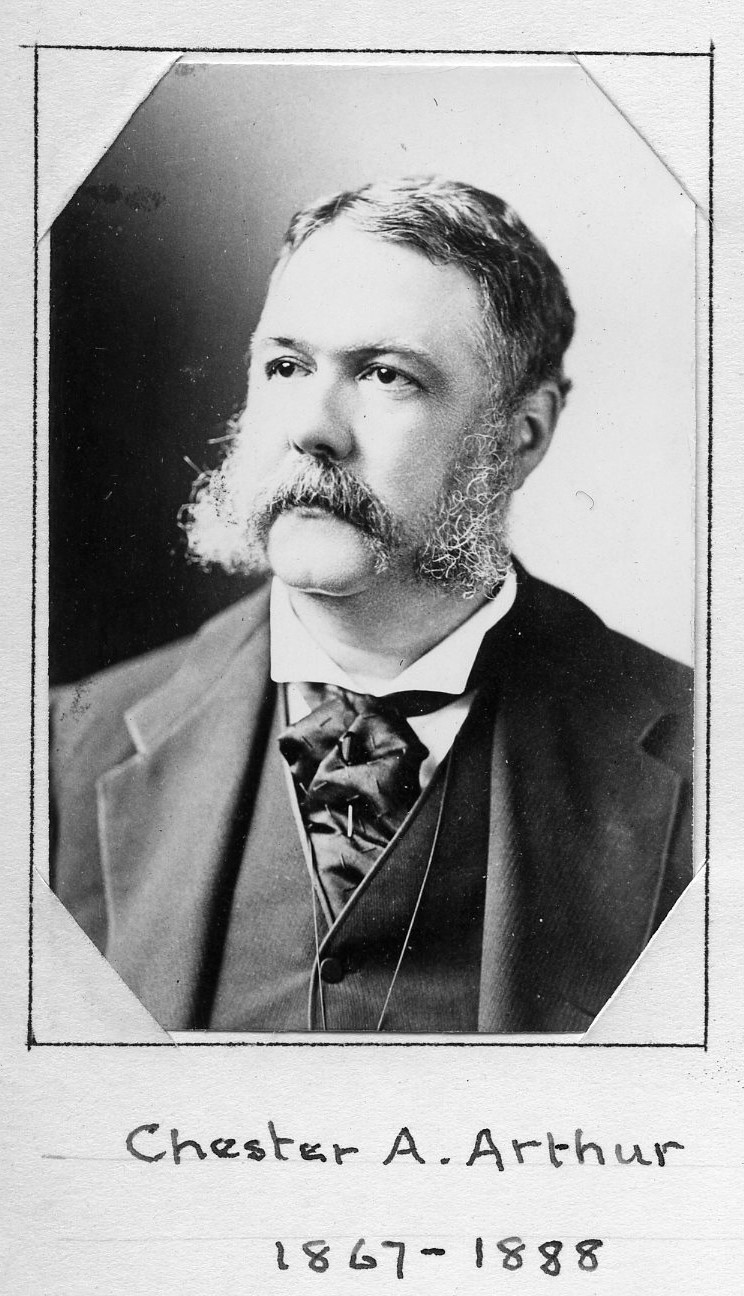 Chester A. ArthurPolitician/U.S. PresidentCenturion, 1867–1886
Chester A. ArthurPolitician/U.S. PresidentCenturion, 1867–1886 -
 James C. CarterLawyer/Public ServantCenturion, 1857–1905
James C. CarterLawyer/Public ServantCenturion, 1857–1905 -
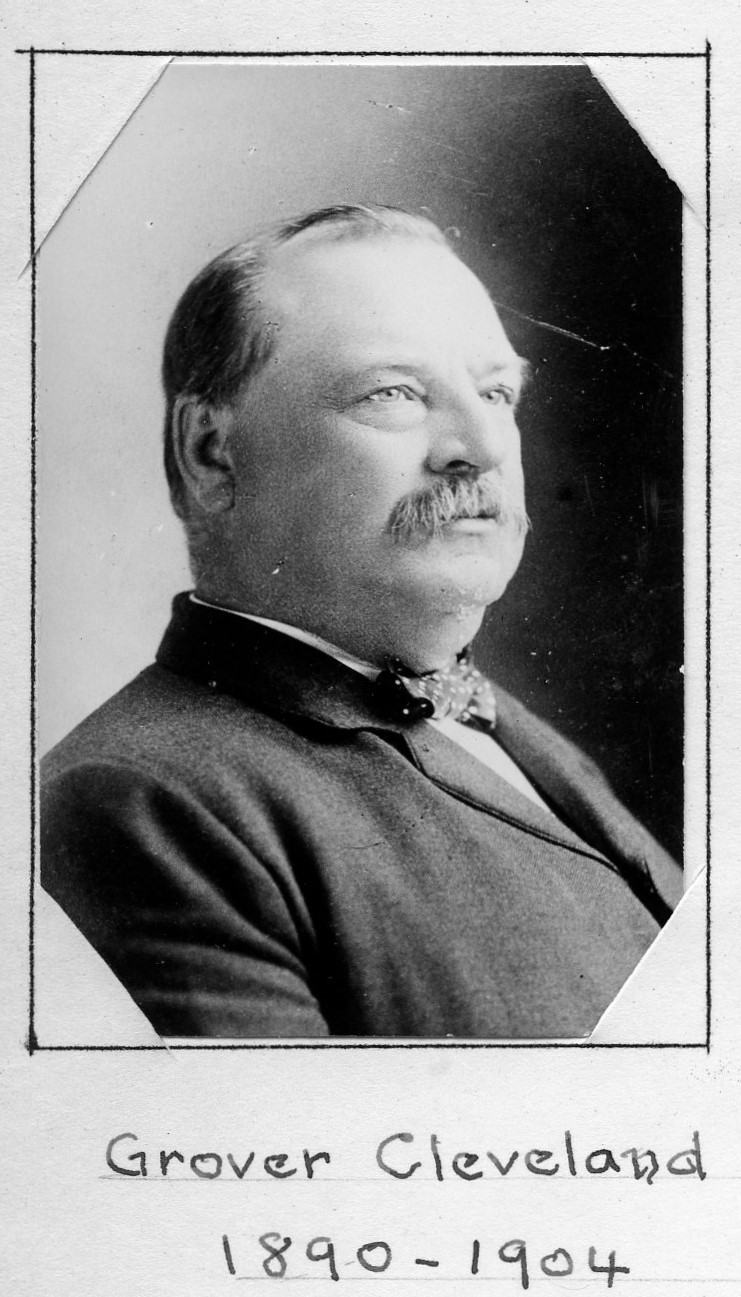 Grover ClevelandU.S. President/Governor of New YorkCenturion, 1890–1904
Grover ClevelandU.S. President/Governor of New YorkCenturion, 1890–1904 -
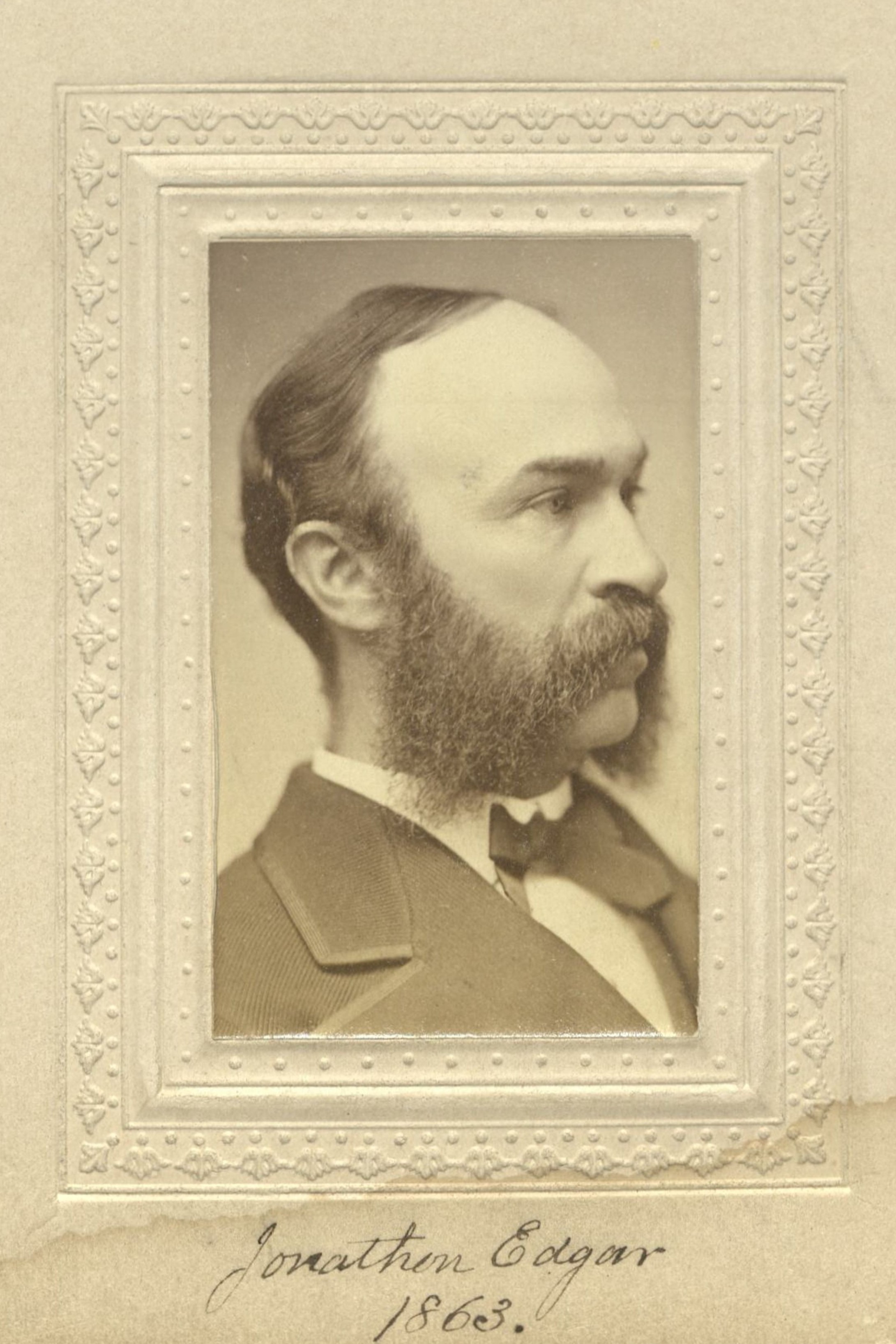 Jonathan EdgarLawyer/PoliticianCenturion, 1863–1879
Jonathan EdgarLawyer/PoliticianCenturion, 1863–1879 -
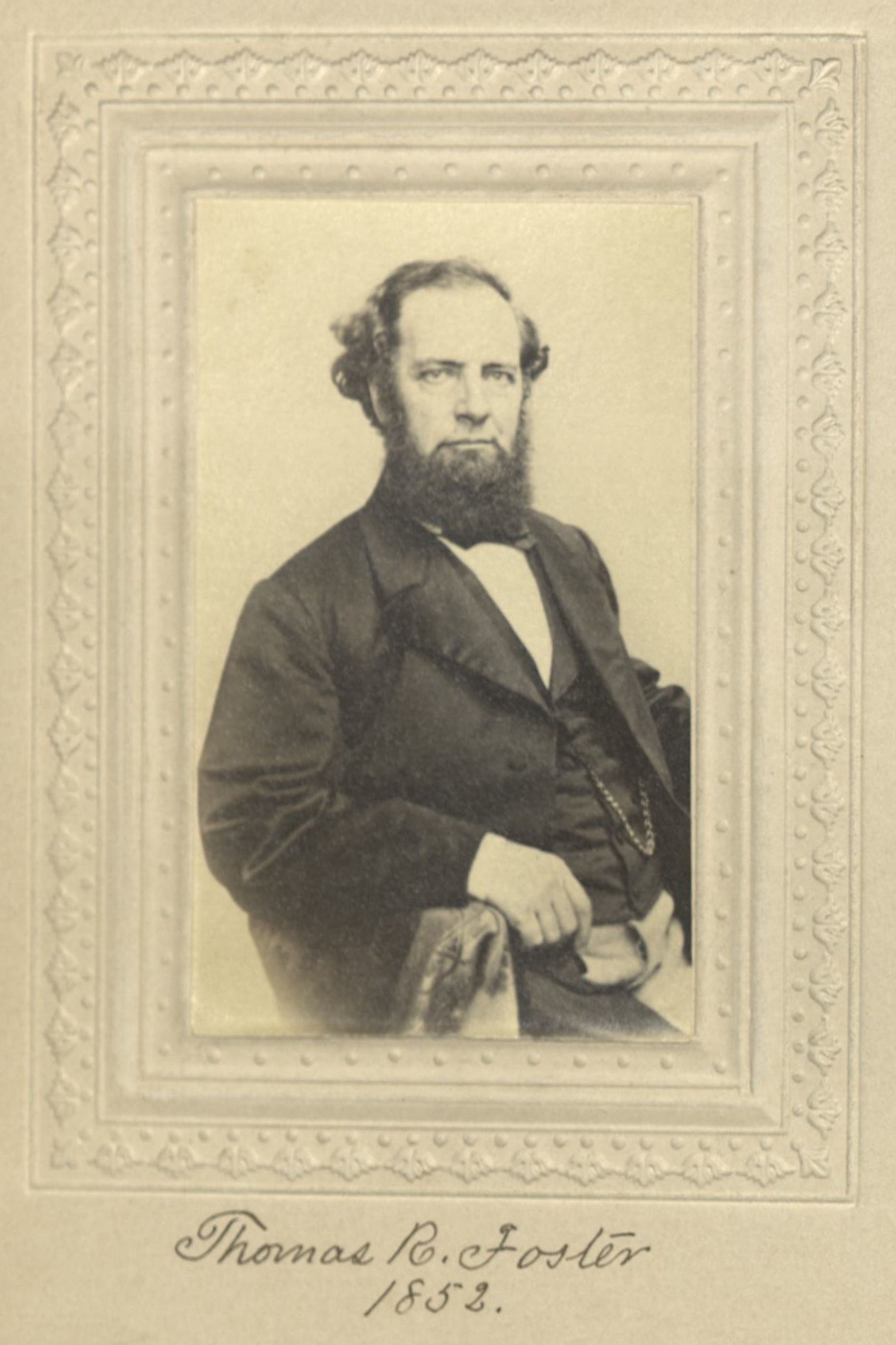 Thomas R. FosterMerchantCenturion, 1852–1867
Thomas R. FosterMerchantCenturion, 1852–1867 -
 William KentJudgeCenturion, 1856–1850s
William KentJudgeCenturion, 1856–1850s -
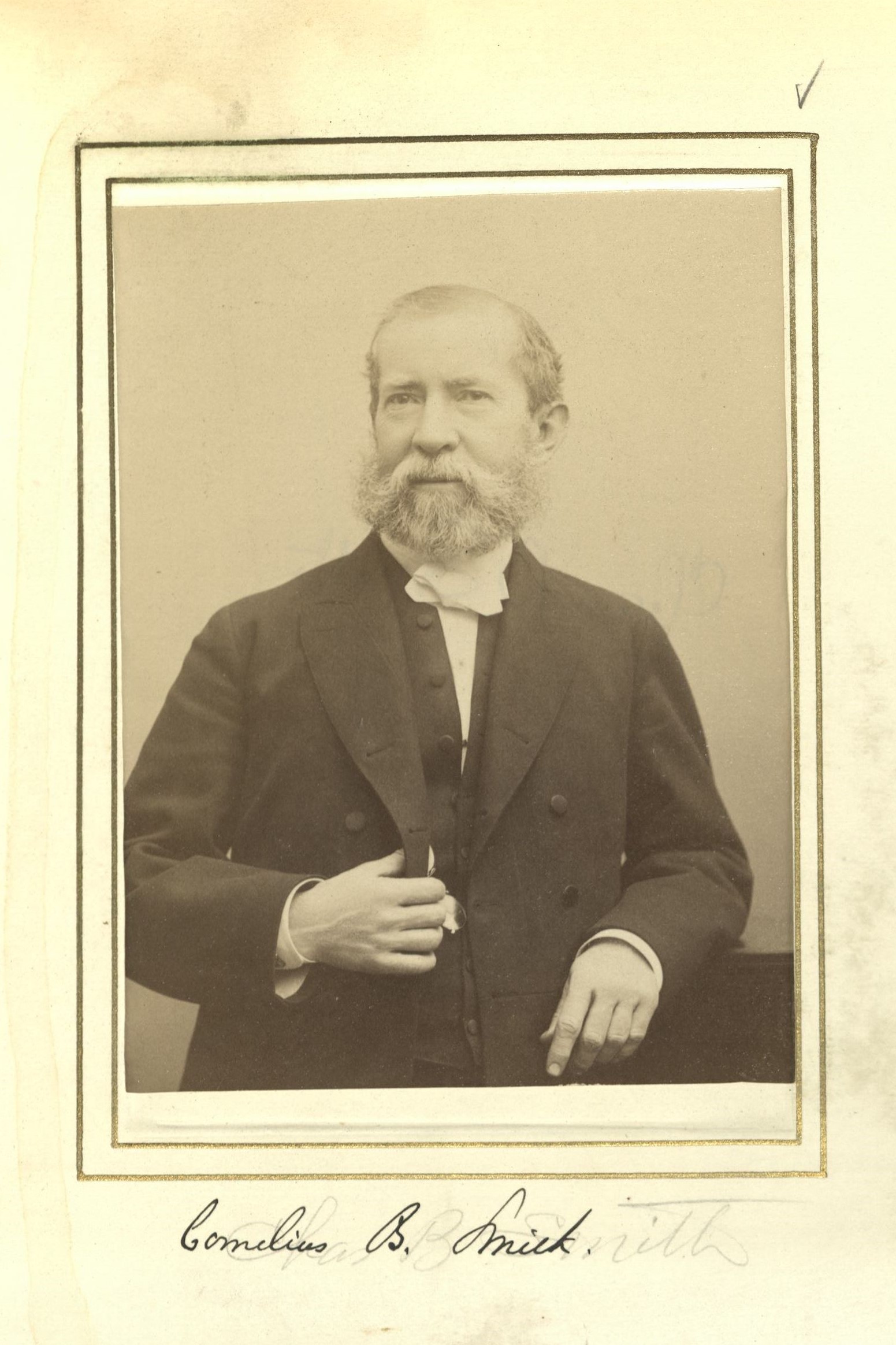 Cornelius B. SmithClergymanCenturion, 1892–1913
Cornelius B. SmithClergymanCenturion, 1892–1913 -
 Theodore Chickering WilliamsClergyman/Hymnodist/HeadmasterCenturion, 1890–1908
Theodore Chickering WilliamsClergyman/Hymnodist/HeadmasterCenturion, 1890–1908





